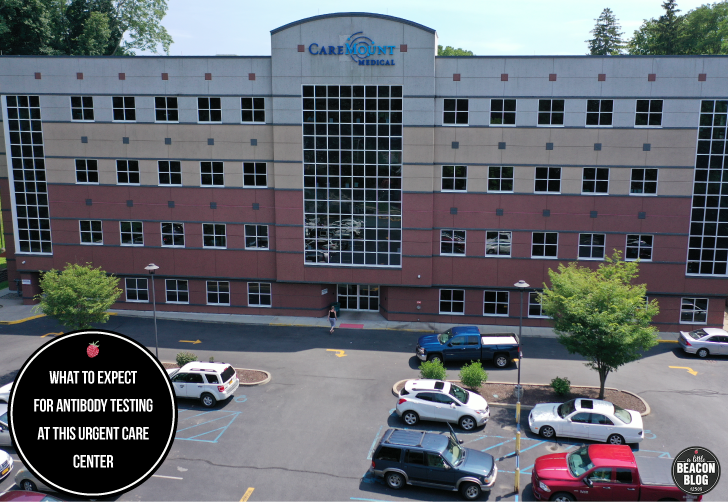The antibody test for COVID-19 is a hopeful test linked to helping others by way of donating plasma to those infected, and considered by policy makers and employers when designing how to open a business back up safely. However, as it is so new, most antibody tests are not FDA approved, and are instead FDA “authorized” under Emergency Use Authorization. Different antibody tests offer different degrees of being accurate for various reasons, and there is no evidence to suggest that once a person has antibodies, that they cannot contract SARS-Cov-2 another time within a period of time. Also unknown is how long antibodies would last in a recovered person’s body from the time of the initial infection. Testing positive for antibodies could lead to a false sense of security, as testing is still underway to explore immunity and re-infection.
Taking The Antibody Test
But I wanted an antibody test anyway. Back in February, my children and I were very sick. All of the kids at elementary school were sick, as different bugs seemed to be circulating throughout the school. If the After School Program had 25 kids in it, 7 kids would easily be out. The “heard” theory wasn’t working as I would have thought, as once my one child got through with a 2-week long Flu B and intense leg pain where he couldn’t walk, he got another 2-day stomach bug after it cleared up. And that was just one of my children.
As for me, I was in my bed for 3 days, and was tired for days later. The first day I couldn’t get up to take my kids to school, my dizziness was so severe. I fainted more than once and made sure to have coffee nearby to keep my blood pressure up. My kids all stayed home and fed me Honey Nut Cheerios and Gatorade. The next day, neighbors picked up my kids to take them to school. It wasn’t until a week later that my daughter developed a never-ending nausea after vomiting for 2 days and hurting her stomach muscles and spiking fevers.
Dark circles were under her eyes where I thought she was iron deficient, yet she wouldn’t eat the cheeseburgers like she normally did. She had no appetite She begged to not go to school, even though no other symptoms presented. My toddler started needing the neutralizer every day for a week and I had to keep him home to give him Albuterol to stop his cough, which got worse as he slept. Otherwise he was in good spirits. It wasn’t until Quarantine that this all cleared up and disappeared. We have been healthy ever since.
After the antibody tests got announced as being available, I waited a bit, and then Googled where to go. I picked Caremount Medical Center, and this is how the experience was:
Antibody Testing At Caremount Medical Center In Poughkeepsie
Caremount’s Fishkill Urgent Care office is closed, but their lab remains open. Poughkeepsie’s office is open and seeing walk-in patients for any reason. Splinter, not feeling well, whatever you need. But you don’t physically walk in (well, you could, there are people in PPE greeting you at the door armed with thermometers and computers to put you on a list). Once you park, call the nurses inside to get put on the list, and then wait in your car in the parking lot.
The urgent care is actually in the back of the building, so if you GPS it, you’ll want to go around by the Hudson River, through through an underpass, and wait in the parking lot behind the main building. If you are there for a COVID-19 test, which you can do without a prescription, you will wait in your car, and the nurse will come out to take your vitals and administer the nasal swab test.
For the anti-body test, this is a simple blood draw. When it’s your turn, the nurse will call you inside from the parking lot and assign you to a room. Because most everyone is in their cars in the parking lot, there aren’t that many people in the medical office. In the appointment room, your vitals will be taken, and a nurse dressed in PPE will draw your blood. Then you are done and the test will be processed in 24-48 hours in the Caremount lab in Brewster.
Which Brand Of Antibody Test Is It?
The antibody test Caremount Medical is using is the Ortho-VITROS test, which you can read about here. You can read about all of the FDA Emergency Authorized tests here at the FDA website.
Gothamist put together an enormous antibody testing guide through their collaborative project with WNYC and ClearHealthCosts to promote transparency in health care, which you can read here. The guide covers which medical facilities are using which tests and labs, and how much it costs.
How Much Does The Antibody Test Cost? Is it Covered By Health Insurance?
ALBB has not dug into the CARES Act to find this answer, but we can tell you this: when we called around to different urgent cares, the prices were different and depended on office visit fees, and lab processing tests.
At Caremount, the out of pocket self-pay (no insurance) cost would be a down payment of $150 for the test office visit. This fee can be kept on your account for future billing. Depending on your symptoms and things wrong with you that day, this fee could increase. But if it’s just the test, it should stay. Then, the test itself is $55 additional from the lab, even though the lab is in-house at Caremount.
By comparison, at Pulse MD Urgent Care in Poughkeepsie, which is also walk-in service but requires a tela-health visit first for $50. Then, the in-person office visit is $120, and the $50 telahealth is deducted, bringing the charge you’d pay at the office to $70 (so, $50 paid for the telahealth call, and $70 paid in person). If this sounds a little confusing, do call them.
Pulse MD uses Quest to process the test, and that fee is $150. However, the lab rate for the test has been changing, said an employee at Pulse MD, but $150 seemed like the average price.
If you have insurance, call first to see what they cover. In my case, I do have insurance and they are paying 100% of the lab fee, and the usual for the office visit. If you are a front line essential worker, rules may have been created for you that entitle you to a free test, but you’ll need to inquire with your employer, and ask if the office visit is covered.
So…Do You Have The Antibodies?
Alas, no. All of that sickness, and it was just the usual mush. Unless the results were not 100%. But it is fine, because I probably would start being less cautious anyway, and we have to keep being cautious even if we have antibodies.
FAQs From A 7 Year Old
“Did it hurt?”
I have a high pain tolerance, so blood tests don’t usually hurt me. I just take deep breaths and look away. On the other hand, an experienced nurse will know where to place the needle in just the right spot in your arm, nail it, and if you’re looking away and thinking of something else, you usually won’t feel anything. Once the needle is in your arm, the blood shoots through the thin blood collection tube. It’s kind of fun to watch because it moves so fast.
“What if a food source was in your blood and came into the tube?”
I am understanding this question to be: “What if a lump of food was in your blood and came through the tube.” So, I think that would be pretty bad, as food chunks usually are not in your veins. But blood clots can be in your veins, and those are bad. Blood clots are also connected to COVID-19 that are connected to strokes. I am not a medical professional, but I don’t think a food source would be in your vein, but a blood clot could be. If this were to happen while you were getting a blood test, the medical professionals would start helping you right away.









































